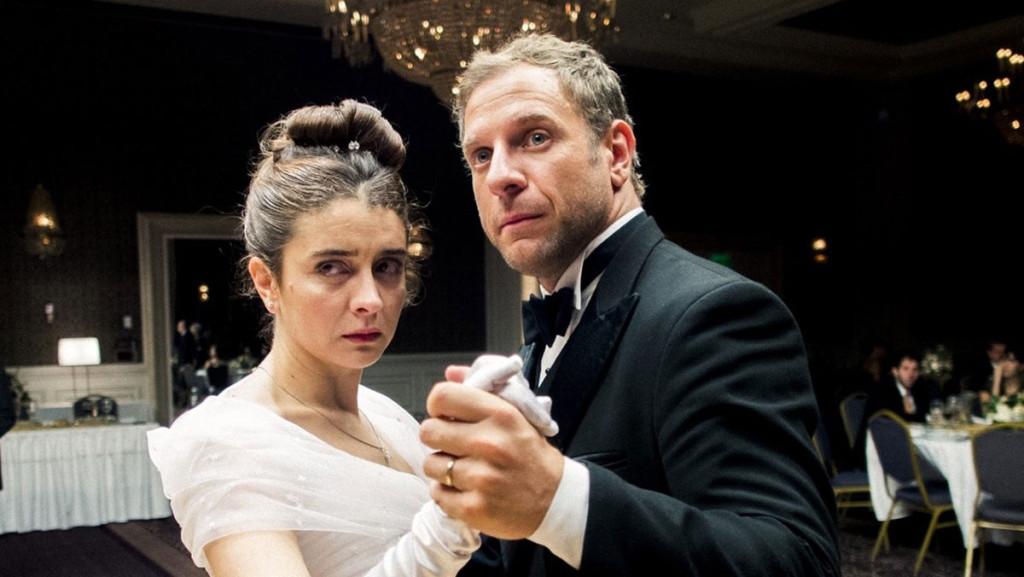Six stories unravel across the Argentinian landscape in “Wild Tales,” each one crackling with the embers of vengeance. Kick started by an opening-credit sequence featuring stills of animals, both predators and prey, this is a film that thrives on the savagery of its characters. In modern cities and lonely diners, on airplanes, rooftops and deserted highways, there is no corner of society left unmarked by the characters’ barbarity. Writer-director Damian Szifron finds a surprising amount of humor in the chaos, and the cumulative effect is a film that is more farcical than nerve-wracking. The extremity and effectiveness of each tale varies, but harmony is achieved in the consistency of the film’s twisted tone.
As with any anthology, “Wild Tales” is faced with the conundrum of rising above the sum of its parts. Even when unified under a single directorial vision, it is difficult to produce multiple sequences of similarly high quality. For the most part, Szifron quells this concern, delivering a series of narratively unrelated segments that are both fluid and clever in their storytelling. In the first tale, a chance encounter on a plane turns out to be something much more malicious. It’s followed by a poison plot, a severe case of road rage, explosive rebellion and negotiations with a potential scapegoat before ending with a wedding reception from hell. The film plays within a heightened reality, and extraordinary coincidence drives much of the action. As the happenstances increase, every story proves to be an exercise in escalation. Polished, rigorously formal direction often gives way to something more closely resembling the unhinged ferocity of the belabored characters, and in this marriage of form and content, an enjoyably mad cinematic experience is born.
Above all, the humor is the film’s greatest asset. It toes the line between the macabre and the absurd in scene after scene, juxtaposing horrific acts and destructive proposals with wacky ironies and outcomes, sometimes within the space of just a few moments. This is witnessed in a humorously restricted, but eventually deadly, scuffle inside a car, as well as in a shameless murder confession by a formerly imprisoned female cook. As one might have gathered by now, “Wild Tales” engages in a deliciously dark brand of comedy, and it’s a combination of smart dialogue and a strong ensemble that makes it work. Conversations are brutally blunt and the actors rise to the occasion, delivering their lines with either a steely deadpan or a controlled theatricality. Going by the sheer number of laughs the picture has to offer, it would seem that it’s all fun and games, but in actuality, there is a slight attempt to work in more allegorical elements.
“Wild Tales” dabbles in a number of consistently incorporated themes, but hesitates to do much more than dip its proverbial toe in any one of them. Chiefly, it deals with pride, skewed justice and the consequences of bad behavior as well as class friction and the embitterment of the little guy. Despite burying kernels of deeper meaning in a handful of specific lines and images, the exploration of these topics is surprisingly superficial. Rather than explore, it merely presents the dynamics of pride, skewed justice and bad behavior in each story as a general framework for a sensationally twisty narrative to be hung upon. In other words, it carries the mantle of social commentator lightly and takes greater pleasure in shocking, sensorial thrills. However, when the narratives are as entertaining as they are here, the problem of depth becomes less of a priority.
Suitably titled and far from delicate, “Wild Tales” is a solid anthology about people losing control and fighting to reclaim it. Certain stories fail to be as richly compelling as others, and it occasionally becomes overly obvious in the structural assertions of its themes, but as a pitch black comedy thriller, the film is wickedly satisfying.




















